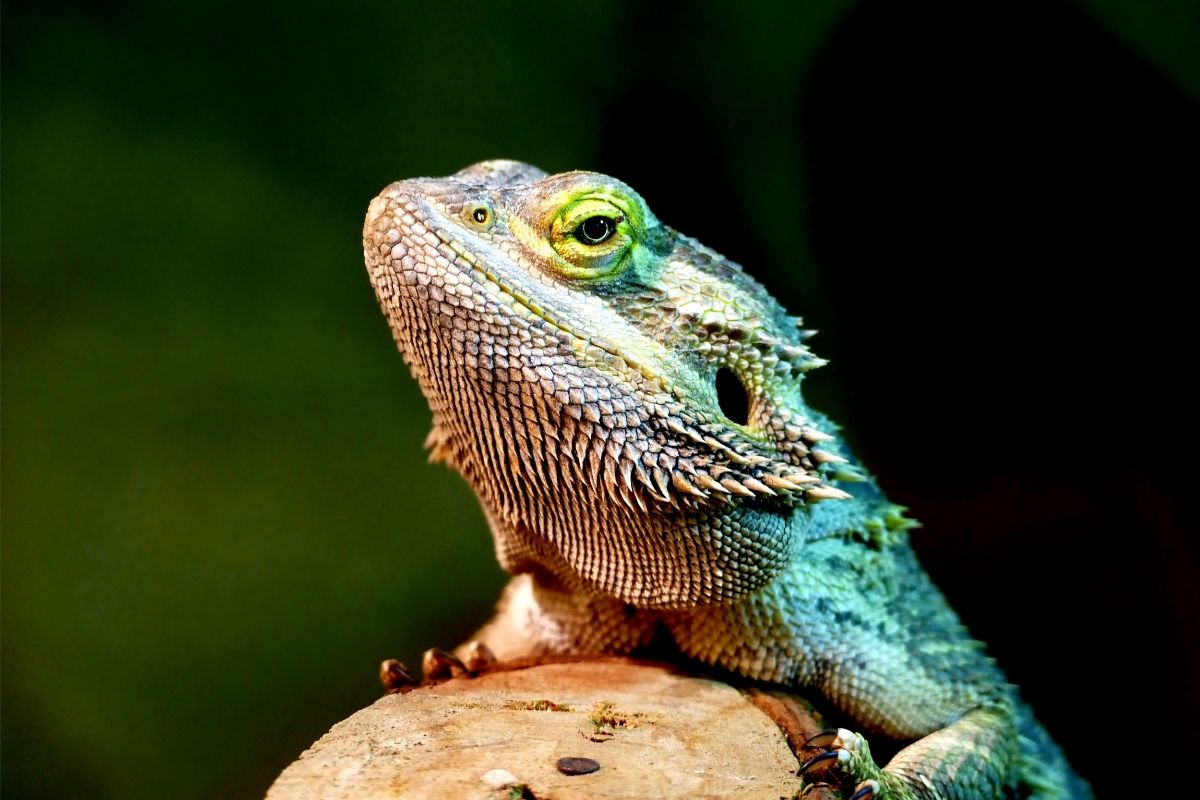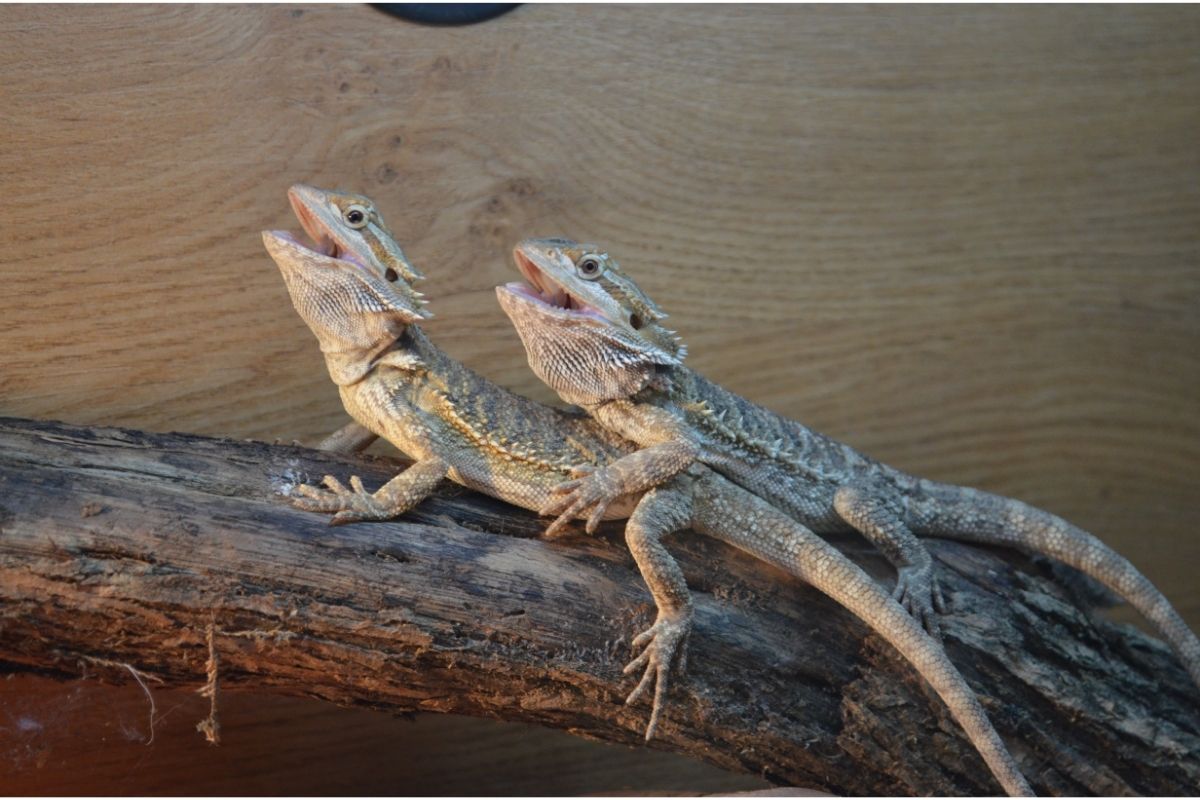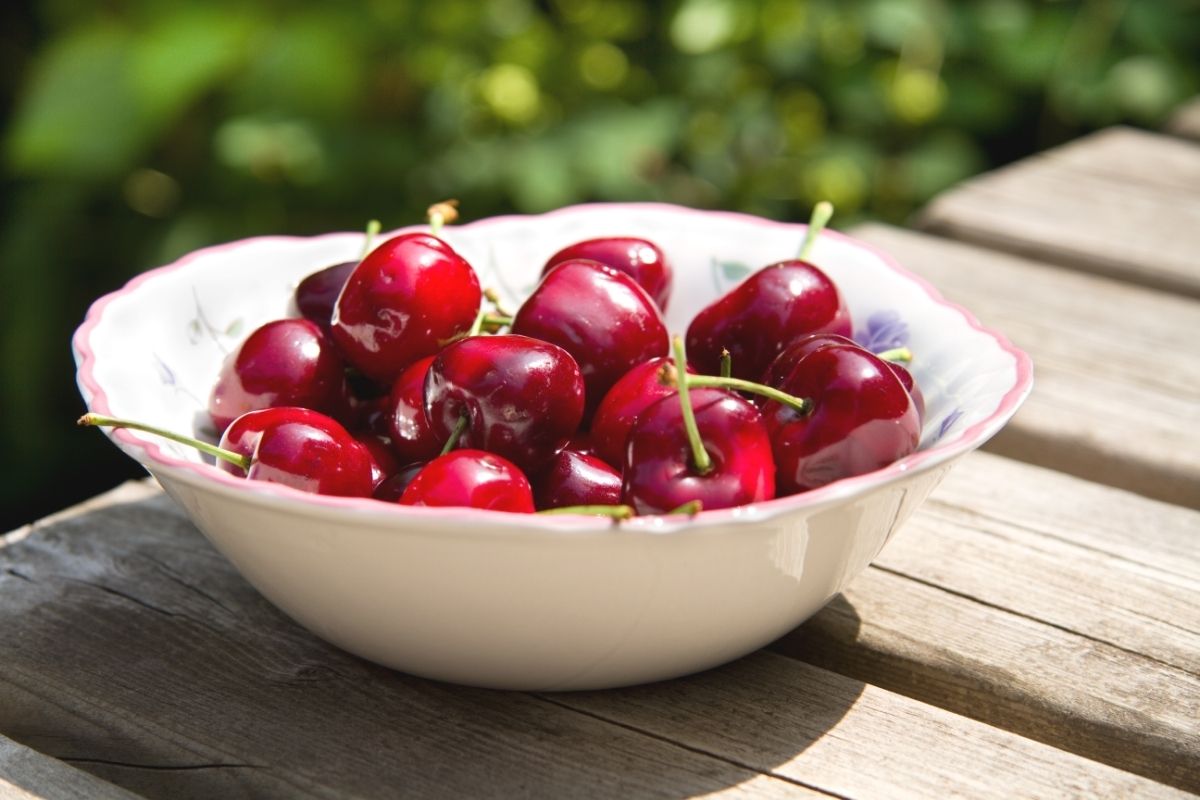Grapes are a delicious and nutritious fruit that humans love eating. A lot of people consume these berries in the form of wine.
They are part of the Vitis family. Grapes are great sources of vitamin K.

This is an important nutrient for healthy bones, teeth, blood clotting, and heart health. Grapes also contain high levels of antioxidants and copper.
Because of this, you may assume that bearded dragons can eat grapes. After all, these creatures eat lots of green vegetables.
However, there are some things to consider before doing so. If you are unsure of whether your dragon can eat grapes, we have the answers to your questions.
What Do Bearded Dragons Eat?
Bearded dragons are lizards native to Australia. They are omnivorous reptiles that feed on insects, worms, spiders, mice, and even some plants.
Their diet consists mainly of green vegetables, such as rockets. In fact, this should be 75% of their diet.
The rest of it should consist of insects, including crickets and locusts.
You will also find them consuming fruits. You should refrain from feeding a dragon too much fruit, as their high sugar content can be harmful.
These creatures also like snacking on rodents, namely mice.
Is There Any Risk To My Dragon Eating Grapes?
The answer to this question is yes. Grapes can be quite harmful to these reptiles. If your bearded dragon eats a grape, you should not panic.
They can consume them safely from time to time. However, you must refrain from feeding them grapes often.
If you intend on giving grapes to your dragon, be sure to cut them into bite-sized chunks.
This way, they will have less chance of choking on the grapes, or the grapes getting stuck in their throats.
Seeds
Also, make sure that they do not get any seeds. Seeds can cause problems if swallowed by the reptile. Thus, we advise getting seedless grapes.
Even when using these grapes, it is recommended that you double-check to see if any seeds are present.
Grape seeds can cause impaction. This means that the intestine experiences problems. When this happens, the animal cannot digest food properly.
As a result, its body becomes weak. They will be unable to have bowel movements, making the dragon very ill.
This is why we recommend avoiding grape seeds.
High Water Content
Grapes contain high quantities of water. If you give your dragon too many of these berries, they could become overly hydrated.
Though having lots of moisture is normally good for most animals, it can actually be harmful to dragons.
If your bearded dragon has been drinking too much water, you need to reduce its intake.
If you notice that they are becoming lethargic or losing interest in their surroundings, then you need to take action immediately.
Because they originate from dry and warm desert environments, these reptiles require less water than other species.
Therefore, you should only provide them with enough water to keep them hydrated.
A good way of doing this is by leaving a water bowl in their tank so that your dragon can help itself to water whenever it feels thirsty.
Excess Sugar
As mentioned, grapes are loaded with natural sugar. If your bearded dragon consumes more than what they need, then it will experience weight gain.
This can lead to obesity. Obesity can cause health issues, especially for reptiles. For example, they may develop diabetes.
How Much Should I Feed My Dragon Grapes?

This depends on how old your bearded dragon is. Younger dragons usually need less food than older ones.
For example, a baby bearded dragon would eat fewer grapes than an adult one.
If you intend on giving grapes to your dragon, you should only give them a few at once.
This way, they won’t feel overwhelmed by the amount of food they receive.
It is also advisable to keep their diet consistent. Once you start feeding them grapes, you should continue with the same routine.
Otherwise, they might become accustomed to having them all the time.
We advise only giving them grapes roughly once a week.
At least, you should do this if your bearded dragon is healthy and does not consume a high sugar content from other foods.
If your dragon is in poor health, such as if it is quite elderly or it already consumes a lot of sugar, you should give them grapes more sparingly.
You won’t have to peel the grape skin because it is perfectly safe for your dragon to eat. This will save you a lot of time and effort
How Should I Serve The Grapes?
If you have a bearded dragon that does not like eating vegetables but loves fruit, you can serve them together.
The reptile will likely eat all the leafy greens due to the sugary taste of the grapes. Baby dragons are particularly prone to falling for this trick.
You can also give these grapes to your reptile as a reward for good behavior.
For example, if it has eaten all of its food, you can reward it with a chopped grape. You can also try using other fruits as rewards if your dragon prefers them.
What Are Some Other Foods That Bearded Dragons Like?

As mentioned earlier, bearded dragons prefer to eat green vegetables. They also enjoy carrots, cucumbers, lettuce, and spinach.
In terms of fruits, bearded dragons can eat:
- Apples
- Watermelon
- Cherries
- Pears
- Strawberries
- Figs
- Raspberries
- Blueberries
- Blackberries
- Kiwis
- Peaches
- Plums
This list shows that these creatures are not particularly picky eaters.
They will eat the majority of fruits and vegetables, meaning that it is quite easy to ensure that they receive the correct nutrients.
As with grapes, these fruits should not form a large percentage of a dragon’s diet.
In terms of what fruits you should avoid, citrus fruits, such as oranges, limes, and lemons, are not the optimal option.
This is because they are incredibly acidic. When fed to a bearded dragon, this can cause stomach issues, which can be fatal.
You should therefore try to limit your bearded dragon’s consumption of these fruits.
Aside from this, you should feed bearded dragons aforementioned foods such as insects, vegetables, and rodents.
These foods are beneficial for reptiles because they provide essential vitamins and minerals.
These reptiles can also consume some meat, though these are best left as occasional treats.
Some people even like feeding them raw meat, but you should be aware that there are some potential dangers to doing this.
Frequently Asked Questions
What Is The Best Way To Clean My Reptiles’ Tank?
Prior to cleaning, move your bearded dragon to a safe location. We recommend using hot soapy water and a sponge to clean the tank.
You should use warm water when cleaning your bearded dragon’s tank. This is because it will be more effective at removing bacteria than cold water.
You can use a sponge to rub this water against the tank. Once you have cleaned the tank thoroughly, be sure to dry it completely.
Does It Matter If The Grapes Are Green Or Red?
No, the same rules apply to both green and red/purple grapes.
Both varieties of grape are fine as occasional snacks but should not be provided on a regular basis.
In terms of nutrients, these two types of grapes are very comparable.
Is There Any Risk Involved In Giving My Dragon Grape Juice?
Grape juice is an excellent source of vitamin C. However, it contains a significant amount of sugar.
Therefore, we would not recommend providing your bearded dragon with significant quantities of grape juice.
We suggest instead serving them water if you want to ensure that they do not become dehydrated.
After all, sugar is not very beneficial for bearded dragons.
Are Bearded Dragons Allowed To Consume Grape Leaves?
Yes, they are. Just make sure to cut them into manageable sizes. These leaves are high in protein, meaning that they will be beneficial for your pet dragon.
Reptiles need decent quantities of protein. Though they often get this through insects, it cannot hurt to provide another protein source.
Final Thoughts
To conclude, we hope that our article has answered most of your questions about bearded dragons eating grapes.
We recommend reading through the information provided above. Feeding your bearded dragon the incorrect food can cause serious problems.
Therefore, we urge you to read up on what kind of food they should eat before deciding to feed them anything else.
If you are unsure, you can always contact a vet.
